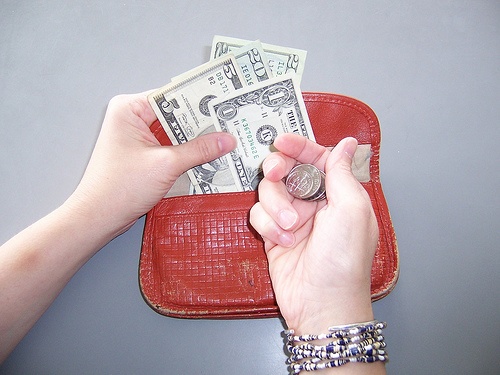By Guest blogger, Gia Machlin
If you have ever watched Seinfeld or any other comedy based on Jewish humor, you know that we Jews are not generally the most optimistic people. Remember the Nanny’s mother and her constant criticism of her daughter, or Don Rickles’ insulting humor? I recently saw a video parody of a Mad Men ad campaign, where the ad execs think the slogan “It gets better” would never work with a Jewish audience. Instead, they came up with a campaign slogan: “It could be worse!”
A lot has been written about how to get a message of environmental stewardship and conscious consumption across without relaying doom and gloom. We are told to inspire people to change their habits, instead of scaring them or instilling feelings of guilt. Terror and guilt can make people feel overwhelmed, helpless, and ultimately hopeless and defeated. So there is a lot of merit to keeping the message positive, inspiring, and empowering. That is what I and so many other environmental bloggers have been trying to do over the years. But being optimistic and inspirational is not mutually exclusive with being realistic, informed, and completely honest about some really unpleasant facts. And just as “It Gets Better” may not work with all audiences, we mustn’t feel that we can’t use a little sobering reality to encourage people to change their purchasing habits.
The movie “An Inconvenient Truth” made people uncomfortable enough to start installing solar panels, drive Priuses, and rethink their indiscriminate use of fossil fuels. It’s time to get people thinking hard about their addiction to cheap consumer goods, and to understand the true cost of the products they purchase. Not to be a bummer, but that cheap but chic clothing, that wildly popular cosmetic, or that great smelling air freshener all have some pretty ugly side effects. Let’s make sure we talk about these issues openly without the fear of being called “Debbie Downer.”
Let’s break this down into a few simple questions to ask yourself when shopping:
- Do I really need this? Is there something I already have that can be repurposed or reused to perform the same function? If the answer is yes, or if the answer is no but you still feel like treating yourself to something new (it’s important to allow indulgences unless you want to and commit to changing your life radically), then move on to question 2.
- How long will this product last? Is it made of something that is durable or will it fall apart after a few uses? If the answer is more than a year (or whatever standard you select), then move on to question 3.
- What material/ingredients make up this product? Does it contain toxins that can be harmful to people and the environment? If the answer is no, move on to question 4.
- How/where was this product made? Did the workers get paid fairly? Are they working in safe conditions? If the answer to this is yes, move on to question 5. (Note – this is a hard criteria to meet, unfortunately, so until more companies take this on at the corporate level, you may have to settle for moving on to question 5 even if the answer is no).
- How will I ultimately dispose of this product? Can it be recycled, or better yet, composted? If not, can I give it away for reuse or repurposing? Even if you don’t know, this is important to think about when you make a purchase decision.
There are many other things to consider, like how much packaging is involved, how energy efficient the product is (for electronics), how far the product needed to travel before it got to the store, and the list goes on and on. But if everyone took the time to at least ask themselves these 5 simple questions every time they shopped, we would see a big change in where and how people spend their money.
You may be wondering how this ties back to being a downer. I believe these questions are not asked because it takes some pleasure out of the shopping experience. How can I enjoy that beautiful coat when I have to think about the conditions of the workers who made it in some far away country?
However, if we talk about these issues more openly and make them a part of our daily discussions, people will become informed and (heaven forbid) maybe feel bad about the consequences of their indiscriminate shopping, and make some real changes that will ripple across the shopping world.
 Gia Machlin, president and CEO of EcoPlum, an online green shopping rewards site. Watch for her contributions to the CSRHub blog on eco-friendly products and green living ideas. For more on EcoPlum, or to follow the EcoPlum blog, visit www.ecoplum.com.
Gia Machlin, president and CEO of EcoPlum, an online green shopping rewards site. Watch for her contributions to the CSRHub blog on eco-friendly products and green living ideas. For more on EcoPlum, or to follow the EcoPlum blog, visit www.ecoplum.com.

